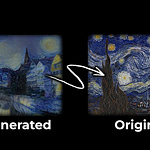A single Studio Ghibli-style film can take 5 to 7 years to complete and require over 100,000 hand-drawn frames.
But AI can generate a frame like this in under 10 seconds.
In just five years, we’ve gone from clunky chatbots to AI models scoring in the top 10% on the bar exam and even helping scientists discover new antibiotics.
We’re no longer advancing alongside AI. We’re being left behind.
I’ve used AI since 2016 and am now training Fortune 1000 teams on how to use it so they’re prepared for what’s coming next.
I’ve consulted in over 37 industries and I’m now convinced of one thing:
Humans may no longer be the smartest species on Earth.
Right now, AI doesn’t seem smarter than you, right? It doesn't have your intuition.
AI lacks common sense and intuition. It cannot understand "why" something happens or adapt when rules change.
AI recombines existing data, which means it cannot “imagine” or “create” like humans do.
But that creates a false sense of comfort. Because we assume intelligence must look human to be powerful.
And that’s a dangerous illusion. As Eliezer Yudkowsky, co-founder and research fellow at the Machine Intelligence Research Institute, said, “By far, the greatest danger of Artificial Intelligence is that people conclude too early that they understand it.”
See, humanity took centuries to master the complex systems we live by today. Mathematics evolved over thousands of years, from Babylonian arithmetic to Newton’s calculus in the 1600s. Language itself appeared around 3000 BCE, but modern grammar and linguistic theory only began forming in the 19th and 20th centuries. And art, everything from perspective drawing to classical composition, took millennia of cultural evolution.
But today, AI can replicate the hand drawn magic of Studio Ghibli in a style that took decades of human mastery to develop… in just seconds.
Let’s also take DeepMind’s AlphaGo. Go is a game so complex that it's been described as the pinnacle of human strategy. It took us over 2,500 years to refine. AlphaGo learned it in three days. Then went on to defeat the world’s best human player. Not just with brute force, but with creativity. Moves no human had ever imagined.
Or look at OpenAI’s GPT-4 Turbo. It can write essays, scripts, software, and business strategies in seconds. What takes a human a specialized degree and decades of experience, AI can generate instantly, without ever getting tired, distracted, or emotional.
And this isn’t a linear progression. This is exponential. The AI you're using today is 100x more powerful than what we had five years ago. Think about that. In human terms, that’s like going from the Wright Brothers creating the first airplane to launching interstellar rockets into space in less than a decade.
So when people ask, “Is AI smarter than humans?” they’re asking the wrong question. Intelligence isn’t about mimicking us. It’s about solving problems faster, more efficiently, and at a scale we can't comprehend. That’s why AI is going to surpass human intelligence in ways we aren’t ready for.
Now, when we talk about AI taking over, we imagine an AI that has consciousness.
But a comprehensive study by 19 researchers assessed AI systems against neuroscientific theories of consciousness, such as the global workspace theory and higher-order theories. The study found that current AI systems do not exhibit the necessary indicators of consciousness.
And the neurogenetic structuralism theory suggests that consciousness arises from the complex physiology of biological neurons. Since AI lacks such biological structures, it cannot achieve consciousness as understood in humans.
AI may not have consciousness. But it doesn’t need to think like us to outsmart us. In fact, one of the biggest myths about AI is that it needs to be conscious to be dangerous.
We like to imagine that unless AI can feel or reflect, it can’t truly think. But that’s human arrogance disguised as philosophy. Consciousness might be a beautiful feature of the human experience but it’s not a prerequisite for dominance.
A chess computer doesn’t “know” it’s playing chess. It doesn’t daydream about being the grandmaster. But it still wins. And that’s just the tip of the iceberg.
In the real world, we’re watching non-conscious systems quietly outperform humans at high-stakes tasks. I am talking about medical diagnoses, legal analysis, and even military simulations.
This is a major reason DARPA is testing autonomous AI weapons. I mean, machines obviously hesitate less than soldiers.
Tools like CoCounsel and Harvey AI are already being used by major law firms to draft legal arguments, summarize depositions, and analyze contracts faster and more accurately than junior attorneys.
In 2020, an AI called AlphaFold figured out how proteins fold, something scientists couldn’t solve for 50 years. That helped with making new medicines.
Another AI, Libratus, beat top poker players by learning how to bluff and change its strategy, something even smart people struggle with.
And in 2023, an AI system beat top radiologists at identifying breast cancer by spotting patterns invisible to the human eye. Not by understanding what cancer is, but by pure pattern recognition. Cold, relentless logic. The kind that doesn’t second-guess.
AI doesn’t fall prey to ego. It doesn’t sleep on decisions. And most importantly, it learns from trillions of data points in a fraction of the time.
While we’re still debating whether AI can be conscious, it’s already making better choices faster, cheaper, and without bias fatigue. So, even without actually ‘being human,’ AI could beat humans at making decisions in every domain.
Ever since AI entered public consciousness, the default fear has been the same: What happens when machines take our jobs?
The people closest to AI’s development aren’t just worried about replacement. The deeper threat is that it surpasses us permanently.
For example, Elon Musk famously said on X that AI is potentially more dangerous than nukes.
Geoffrey Hinton, the “Godfather of AI,” said in 2023 there is a ’50-50′ chance artificial intelligence will surpass human intelligence within the next 20 years.
Hinton even said in an interview with The New York Times that “generative intelligence could spread misinformation and, eventually, threaten humanity.”
And futurists like Ray Kurzweil have a different name for this: the singularity, a moment where humans and machines become so deeply integrated that the line between biology and technology disappears entirely.
It sounds wild, until you realize it's already in motion. In 2024, Neuralink successfully implanted a brain chip in its first human patient, a 30-year-old quadriplegic man named Noland Arbaugh, who was suddenly able to move a computer cursor using only his thoughts.
So, the future might not be AI vs humans but AI-augmented humans vs extinction.
That’s not science fiction. That’s a plausible outcome on our current trajectory. When we stop thinking like it’s us versus them, the conversation shifts from fear to evolution.
Kurzweil's concept of Singularity and Neuralink's brain-computer interfaces are leading us toward a time where if we stay purely human, we may not stand a chance.
We’re just scratching the surface of what AI is really capable of but if you’re already seeing the signs and want to stay ahead of this shift, tap the subscribe button below. I’ll make sure you’re prepared for what’s coming next.
Think about it. For over 300,000 years, Homo sapiens have sat at the top of the food chain because we’re the smartest. Intelligence was our edge. It’s what allowed us to create fire, build civilizations, split atoms, and decode our own DNA.
We’ve never had to share that throne, until now. What we’re building with AI is a new form of intelligence that doesn't share our limitations.
And unlike every rival we’ve ever faced, this one isn’t made of flesh and blood. It’s made of code, data, and exponential feedback loops. For the first time in history, we’re staring into the eyes of something that could surpass us permanently.
And it’s not because it hates us or wants power. But because we programmed it to improve and it’s doing exactly that.
If that trajectory continues, AI will be the one writing the future and we’ll be watching it unfold, unable to keep up. This is the evolutionary fork in the road.
So, we’re facing a choice: compete and lose or evolve and coexist.
Fight the tide, and we’ll be swept away.
Flow with it, and we might become something more than human. This is a turning point for our species.
Once intelligence exists outside of biology, the rules of life itself begin to change.
So the real question isn’t: “What will AI become?”
It’s: “What will we become in response?”
Talk again soon,
Samuel Woods
The Bionic Writer






